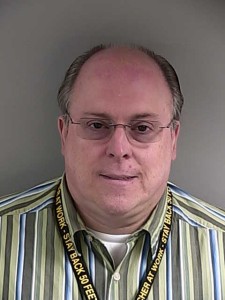Why I Am a Public Safety Telecommunicator
 My journey to be a public safety telecommunicator has been very different than most telecommunicators. I started as a police/fire dispatcher in northeast Indiana in the late 70s. There was no CAD, no 9-1-1, only rural route addressing outside the city limits, one shared radio channel and you worked alone but I did have a big red switch on the wall that sounded the fire/tornado siren on the roof!
My journey to be a public safety telecommunicator has been very different than most telecommunicators. I started as a police/fire dispatcher in northeast Indiana in the late 70s. There was no CAD, no 9-1-1, only rural route addressing outside the city limits, one shared radio channel and you worked alone but I did have a big red switch on the wall that sounded the fire/tornado siren on the roof!
I left public safety when I had a chance to move and work in Oregon. That opportunity allowed me to meet my lovely wife and soulmate. 20 years later my wife saw an ad in the local paper that our police department was looking for volunteers. I applied, was accepted and because of my interest in public safety communications I was soon assigned to the 9-1-1 Dispatch center. While not actually dispatching, at least I was spending time on the operations floor.
This volunteer work is something that I’ve continued for more than 15 years. During that time, I began discussing the possibilities of being a reserve (volunteer) dispatcher. In 2009, the support services manager of the local sheriff’s office who knew of my volunteer work at the police department and my desire to become a reserve dispatcher approached the sheriff at the time about creating a reserve dispatcher position. The sheriff and command staff approved the position and the manager contacted me about joining their dispatch team as a reserve dispatcher. After careful consideration, I applied and was accepted.
One of the concerns people had was that Oregon regulations did not address anything other than one type of state certified telecommunicator, it didn’t matter if you were paid or not. Another concern those people had was, would a civilian really be willing to spend two weeks at that state academy on his own time and keep his certifications current with continuing education hours. The answer is that I took a two-week vacation from my paying job and attended the state academy in 2010. I then went thru the same field training and sign-off process as paid dispatchers. I keep my state telecommunicator and EMD certifications current.
Most Friday and Saturday nights I’m in Dispatch with a headset on answering 9-1-1 calls and dispatching deputies, police officers, fire and EMS. When my paying job was quite stressful and I was working long hours, my friends and coworkers at the paying job would often ask “why do you answer 9-1-1 calls or deal with stressful police or fire calls to relax?” The answer is that when I’m handling a 9-1-1 call or dispatching units to a priority call, I push the other stresses from my life completely from my mind and focus on that call. I am fortunate because my wonderful wife is very supportive of my volunteer activities and she too is active in volunteer work as a therapy dog team in our community.
So… Why I am a public safety telecommunicator…. I like being a telecommunicator and I’m good at it. It’s also because I have a desire to help and be helpful. This is something that was ingrained in me by my parents. It’s very rare for my Dispatch coworkers not to thank me at the end of a shift for helping out. They’ll say things like “we couldn’t have done it without you” which I know isn’t true but I do know that an additional person in the room can make things go much better. Even our patrol deputies often thank me for being there and helping out. Recently one of the deputies called me on the phone for additional information and said “I was so glad to hear you on the air earlier because I knew Dispatch was getting hammered.”
So bottom line… Why I am a public safety telecommunicator…. is because I have a deep respect for what public safety telecommunicators do each and every day, often for very long hours, and it’s my honor and privilege to work alongside those professionals and help out in my own small way.






